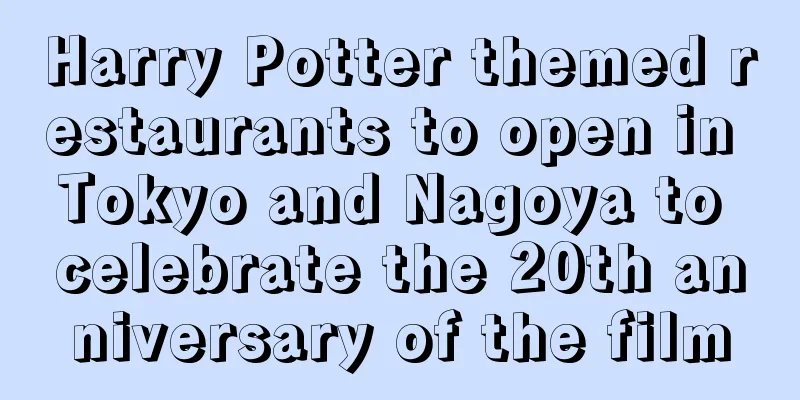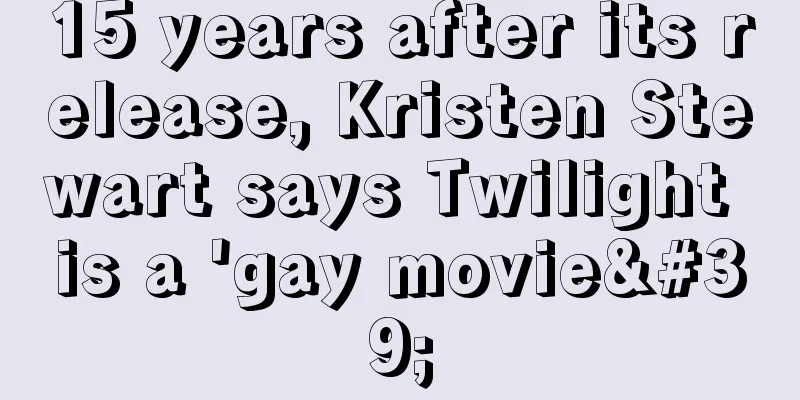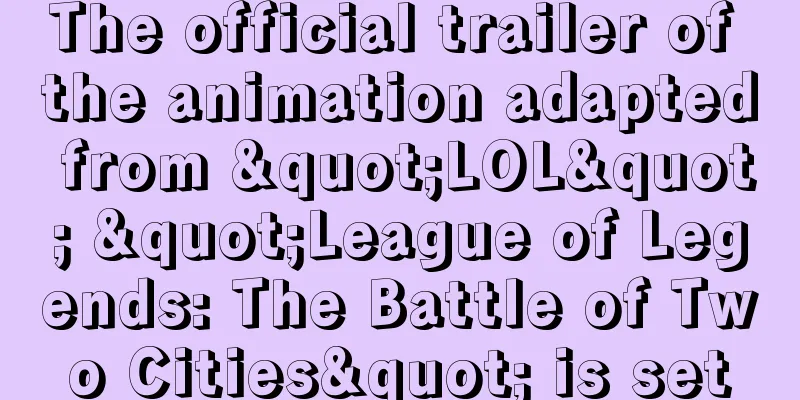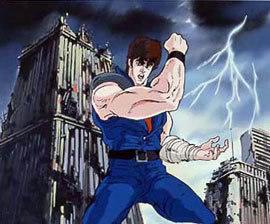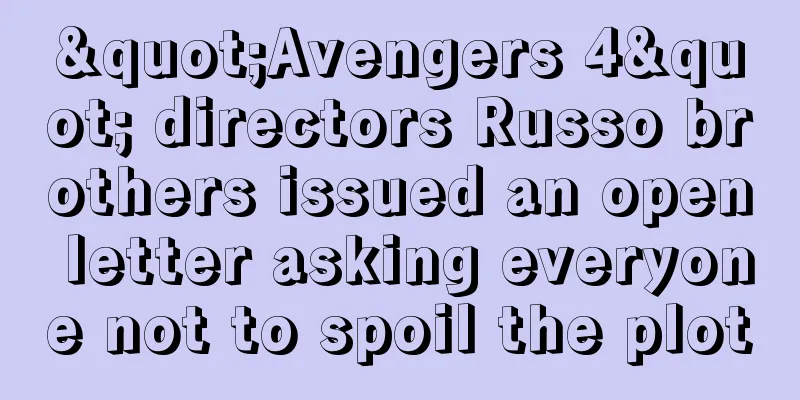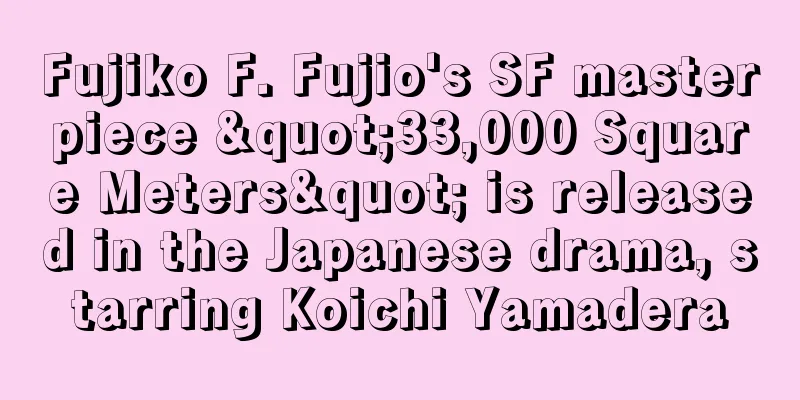The appeal and evaluation of "Hustle Punch": A must-read review for anime fans
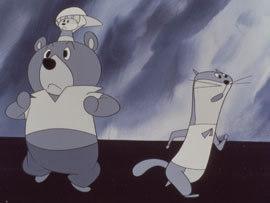
Hustle Punch - Looking back on classic anime"Hustle Punch," which aired from 1965 to 1966, is an original anime produced by Toei Animation. It was broadcast from November 1, 1965 to April 25, 1966, with a total of 26 episodes. At the time, it was aired every Monday from 7:30 to 8:00 p.m., but from January 14, 1966, the time slot was changed to 7:00 to 7:30 p.m. It was broadcast on NET and was a 30-minute program. story"Hustle Punch" is set in a town and centers around a trio of bear Punch, mouse Touch, and weasel Bun. Although they are orphans, they spend their days happily and cheerfully. However, there are villains in the town, including the wolf Dr. Garigari and his minions Black and Wildebeest, who try to disrupt the peace. The story depicts Punch and the other three as they defeat the various evil schemes hatched by Dr. Garigari and do great things for the town. Commentary"Hustle Punch" is a comedy anime featuring anthropomorphized animals. The plot is reminiscent of a foreign comedy drama, and the deformed animal character designs match the story well. Although it is an original anime work, it was loved by children at the time and is familiar to many people. castThe voice actors for the main characters are as follows:
Main StaffThe main staff involved in the production of "Hustle Punch" are as follows:
The theme song for both the opening and ending is "Hustle Punch Song," written and composed by Asei Kobayashi, and sung by Nobuyo Oyama, Yoko Mizugaki, Chiharu Kuri, and the Nishirokugo Boys' Choir. Main CharactersThe details of the main characters are as follows:
subtitleThe subtitles for all 26 episodes are as follows:
Appeal and evaluation of the work"Hustle Punch" was loved by children at the time as a comedy anime featuring anthropomorphized animals. In particular, the exploits of Punch and his friends as they defeat the evil schemes of Professor Garigari gave courage and hope to viewers. Other attractions include the deformed character designs and plot reminiscent of overseas comedy dramas. In terms of music, the theme song "Hustle Punch no Uta" by Asei Kobayashi left a deep impression on viewers. The lyrics and melody are familiar, and children can naturally hum along, which is also a factor in its popularity. The performances of the voice actors have also been praised. The voices of Punch, Touch, and Bun, performed by Nobuyo Oyama, Yoko Mizugaki, and Chiharu Kuri, brought out the individuality of the characters and created characters that are loved by viewers. In particular, Nobuyo Oyama's voice for Punch gave children a sense of familiarity and courage. Influence and Evaluation of the Work"Hustle Punch" had a huge impact on children at the time. In particular, Punch and his friends' heroic exploits as villain-defeating heroes taught children courage and a sense of justice. In addition, the anthropomorphized animal characters stimulated children's imaginations and fostered their creativity. "Hustle Punch" also influenced later anime works. The comedy anime genre featuring anthropomorphized animals was carried over to later works and was loved by many viewers. The setting of villain characters such as Dr. Garigari also influenced later anime works. Furthermore, "Hustle Punch" was a work that reflected the social situation at the time. Japan in the 1960s was in the midst of a period of rapid economic growth, and society as a whole was full of vitality. Against this backdrop, "Hustle Punch" was praised as a work that gave children dreams and hope. Details and episodes of the workEach episode of "Hustle Punch" depicts the exploits of Punch and friends as they defeat the evil schemes of Professor Garigari. In particular, episode 1, "Get rid of the obstacles," depicts Punch and friends defeating Professor Garigari's schemes for the first time, leaving a strong impression on viewers. Also, episode 26, "The Great Flattening Race," depicts Punch and friends finally defeating Professor Garigari, moving viewers. Each episode of "Hustle Punch" also taught children various lessons. For example, in episode 10, "Find the Donuts," Punch and his friends worked together to find donuts, teaching viewers the importance of cooperation. In episode 22, "I'm Superman," Punch transformed into Superman and defeated Dr. Garigari, teaching viewers the importance of courage and a sense of justice. Work evaluation and recommendation"Hustle Punch" was loved by children at the time and is familiar to many people. As a comedy anime featuring anthropomorphized animals, it gave courage and hope to viewers. Another part of its appeal is the deformed character designs and the plot that is reminiscent of overseas comedy dramas. In particular, the exploits of Punch and his friends as they thwart Professor Garigari's evil schemes left a strong impression on viewers. Also, the theme song "Hustle Punch's Song" by Asei Kobayashi left a deep impression on viewers. Furthermore, the voices of Punch, Touch, and Bun, performed by Nobuyo Oyama, Yoko Mizugaki, and Chiharu Kuri, brought out the individuality of the characters, creating characters that viewers loved. "Hustle Punch" also influenced later anime works. The comedy anime genre, featuring anthropomorphized animals, was carried over to later works and was loved by many viewers. The setting of villain characters such as Dr. Garigari also influenced later anime works. Furthermore, "Hustle Punch" was a work that reflected the social situation at the time. Japan in the 1960s was in the midst of a period of rapid economic growth, and society as a whole was full of vitality. Against this backdrop, "Hustle Punch" was praised as a work that gave children dreams and hope. "Hustle Punch" also taught various lessons to children. For example, in episode 10, "Find the Donuts," Punch and his friends worked together to find donuts, teaching viewers the importance of cooperation. Also, in episode 22, "I'm Superman," Punch transformed into Superman and defeated Dr. Garigari, teaching viewers the importance of courage and a sense of justice. "Hustle Punch" is a nostalgic anime classic that is still loved by many people today. It was especially appreciated by children at the time as a work that gave them dreams and hope. It is also loved by many viewers as a work that influenced later anime works. "Hustle Punch" is a comedy anime featuring anthropomorphized animals that gave viewers courage and hope. Other attractions include the deformed character designs and a plot reminiscent of overseas comedy dramas. In particular, the exploits of Punch and his friends as they defeat the evil schemes of Professor Garigari left a strong impression on viewers. The theme song "Hustle Punch no Uta" by Kobayashi Asei also left a deep impression on viewers. Furthermore, the voices of Punch, Touch, and Bun, performed by Oyama Nobuyo, Mizugaki Yoko, Kuri Chiharu and others, brought out the individuality of the characters and created characters that were beloved by viewers. "Hustle Punch" also influenced later anime works. The comedy anime genre, featuring anthropomorphized animals, was carried over to later works and loved by many viewers. Additionally, the villain characters such as Dr. Garigari also influenced later anime works. Furthermore, "Hustle Punch" was a work that reflected the social situation at the time. Japan in the 1960s was in the midst of a period of high economic growth, and society as a whole was full of vitality. Against this historical backdrop, "Hustle Punch" was praised as a work that gave children dreams and hope. "Hustle Punch" also taught various lessons to children. For example, in episode 10, "Find the Donuts," Punch and his friends worked together to find donuts, teaching viewers the importance of cooperation. Also, in episode 22, "I'm Superman," Punch transformed into Superman and defeated Dr. Garigari, teaching viewers the importance of courage and a sense of justice. "Hustle Punch" is a nostalgic anime classic that is still loved by many people today. It was especially appreciated by children at the time as a work that gave them dreams and hope. It is also loved by many viewers as a work that influenced later anime works. "Hustle Punch" is a comedy anime featuring anthropomorphized animals that gave viewers courage and hope. Other attractions include the deformed character designs and a plot reminiscent of overseas comedy dramas. In particular, the exploits of Punch and his friends as they defeat the evil schemes of Professor Garigari left a strong impression on viewers. The theme song "Hustle Punch no Uta" by Kobayashi Asei also left a deep impression on viewers. Furthermore, the voices of Punch, Touch, and Bun, performed by Oyama Nobuyo, Mizugaki Yoko, Kuri Chiharu and others, brought out the individuality of the characters and created characters that were beloved by viewers. "Hustle Punch" also influenced later anime works. The comedy anime genre, featuring anthropomorphized animals, was carried over to later works and loved by many viewers. Additionally, the villain characters such as Dr. Garigari also influenced later anime works. Furthermore, "Hustle Punch" was a work that reflected the social situation at the time. Japan in the 1960s was in the midst of a period of high economic growth, and society as a whole was full of vitality. Against this historical backdrop, "Hustle Punch" was praised as a work that gave children dreams and hope. "Hustle Punch" also taught various lessons to children. For example, in episode 10, "Find the Donuts," Punch and his friends worked together to find donuts, teaching viewers the importance of cooperation. Also, in episode 22, "I'm Superman," Punch transformed into Superman and defeated Dr. Garigari, teaching viewers the importance of courage and a sense of justice. "Hustle Punch" is a nostalgic anime classic that is still loved by many people today. It was especially appreciated by children at the time as a work that gave them dreams and hope. It is also loved by many viewers as a work that influenced later anime works. |
>>: The appeal and evaluation of Jungle Emperor: A review of the first episode of the TV series
Recommend
"selector infected WIXOSS" A thorough analysis of the charm and depth of Midoriko-san and Pirulu-tan
"Selector infected WIXOSS Midoriko-san and P...
Sarazanmai Review: A world where youth and secrets intersect
Sarazanmai - Sarazanmai - Reviews and Recommendat...
The new TV animation season of the famous work "The Seven Deadly Sins" "Rise of the Gods" is scheduled to be broadcast this fall
The new season of the TV animation "The Seve...
The original author of the new trailer of the "Percy Jackson" drama talks about the controversy over the heroine's skin color modification
Recently, Disney released a new trailer for the P...
The weapon on the set was fired accidentally with live ammunition, and the photographer was killed. The manslaughter lawsuit of the famous actor has been dismissed
Famous American actor Alec Baldwin was charged wi...
George Lucas: Many of the concepts of Star Wars were lost after it was sold to Disney
George Lucas, Hollywood's richest director, r...
Poppen Sensei and the Swamp of No Return: A review of the fascinating characters and deep story
"Mr. Poppen and the Swamp of No Return"...
The appeal and reviews of "Kemurikusa": A thorough analysis of the unique worldview and depth of the story
Kemurikusa - A unique world view and attractive c...
The second season of the comic-adapted animation "SHY Shy Hero" was released and will be officially broadcast on July 1
The manga "SHY Shy Hero" is created by ...
The appeal and reviews of "Poron Guitar": A fusion of music and adventure
Poron Guitar - Beautiful melodies that move the h...
Dr. Slump Arale-chan's Traffic Safety: Evaluating the educational value of children's anime
"Dr. Slump Arale's Traffic Safety":...
Why is the stalker character favored by the perfect prince? A thorough evaluation!
The appeal and reviews of "I'm a stalker...
Thor: Love and Thunder releases 60-second trailer for The Universe
"Thor 4: Love and Thunder" will be rele...
Jim Carrey confirmed to return in Sonic the Hedgehog 3 movie
Although he was defeated by Sonic, Tails, and Knu...
The appeal and evaluation of "The Little Rabbit in the Forest": A moving story and the depth of its characters
The charm and reputation of the forest rabbit - M...
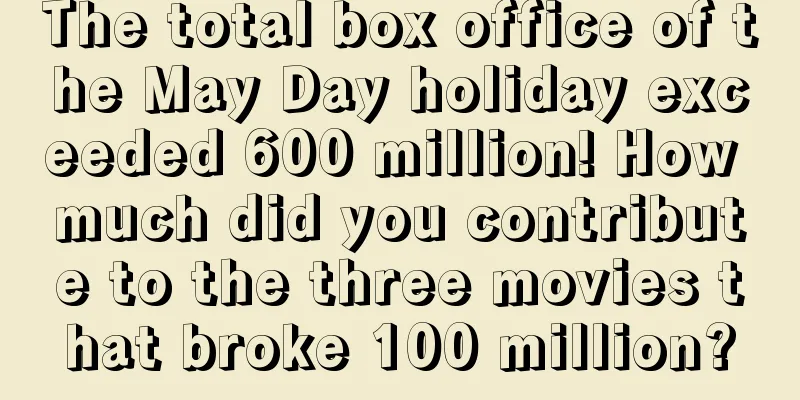
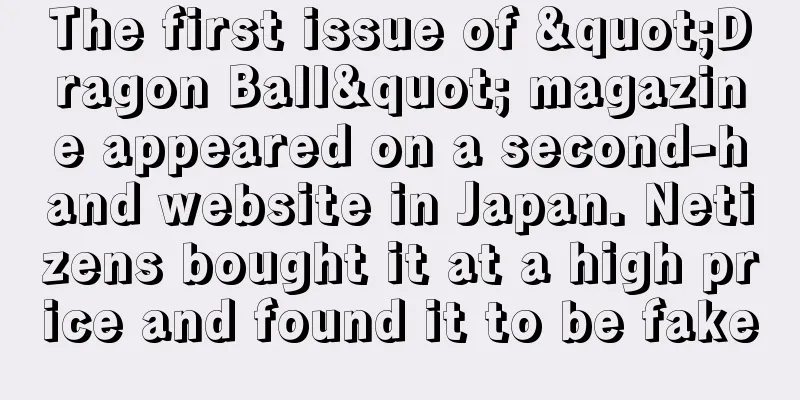

![The appeal and evaluation of Yoshimoto Muchikko Monogatari [CG version]: A deep look into the visuals and story](/upload/pic/03934.jpg)
